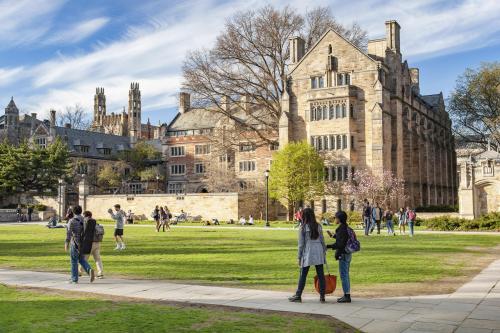Occasionally circumstances arise that require students living off campus to consider subletting their apartments.
Ideally, off-campus students have reviewed their property lease carefully and are cognizant of their landlords’ rules regarding sublets. If not, students should review their lease agreement or contact their landlord to determine the property's specific subletting rules.
If you are permitted to sublet, be sure to ask your landlord about any specific subletting conditions, including:
Once these details are determined, you must also obtain your landlord’s permission to sublet in writing. Your landlord or management company may supply their own sublease; if not, simply create your own with the relevant information. This Sample Sublease Agreement (.DOCX) provides basic sublease agreement guidelines.
Have your subtenant review and sign the agreement, then sign it yourself. Keep your own copy and provide one to both the landlord and subtenant. This document will protect you, your subtenant, and/or the landlord should any future difficulties or misunderstandings arise.
Landlord Questions
Checking the Property and Moving In
Whether you are seeking to lease or to sublet a rental property, we recommend that you use a Property Checklist (.DOCX) while evaluating potential rentals. If not possible during the property search, please complete a Property Checklist - or some facsimile – as soon as you take occupancy of the property. A written (and, if necessary, photographic) record of the move-in condition of your rental unit can offer valuable protection.
Provide your landlord with a signed and dated copy of the Property Checklist, including any photographic evidence of notable conditions or concerns. This Property Checklist and related visual documentation will be essential should any dispute arise over the return of a security deposit in future.
Be sure to discuss moving-in protocols and rules before you take possession of the property. These include but are not limited to:
- Instructions for picking up your keys
- Any specific time window for move-in
- Parking rules, in general and specifically for moving trucks or vans
Utility Accounts
If electricity and other utilities are not included in your monthly rent, you must make arrangements for the property’s utility accounts. The most efficient option is to close any account attached to your name and ask the subletter or your remaining roommates to open new utility accounts for those services. Be clear in your communications and expectations regarding the actions required to ensure uninterrupted utility service or billing responsibilities.
Contact Information
Be sure to update your personal contact information with the university. Yale uses this information to contact students in the case of an emergency or for other important communications. Be sure your update includes:
- Your new physical address
- Contact phone number and email
Moving Out
When you permanently move out of a rental property, be sure to:
- Terminate any utility accounts in your name. Make sure you call utility companies as soon as you vacate so that bills are not left in your name.
- Lock all doors and windows to ensure the property is secure so any future potential damages are not your responsibility.
Proper Disposal of Large Items
When vacating a rental property, be sure to properly dispose of any items you no longer want. For large items such as furniture or mattresses, check with your landlord about arrangements for bulk trash pick-up.
The City of New Haven charges rental tenants $50/per Bulk Trash pick-up, with a limit of two pick-ups per calendar year.
Bulk Trash collections must be scheduled in person at the New Haven Office of Trash and Recycling (34 Middletown Avenue, New Haven, from 7 am-4 pm, Monday thru Friday.) Call the office directly at (203) 946-7700 for an appointment before your visit to confirm that the staff is currently scheduling Bulk Trash collections.
Additional information about Bulk Trash and Pickup is available on the City of New Haven Bulk Trash webpage.
